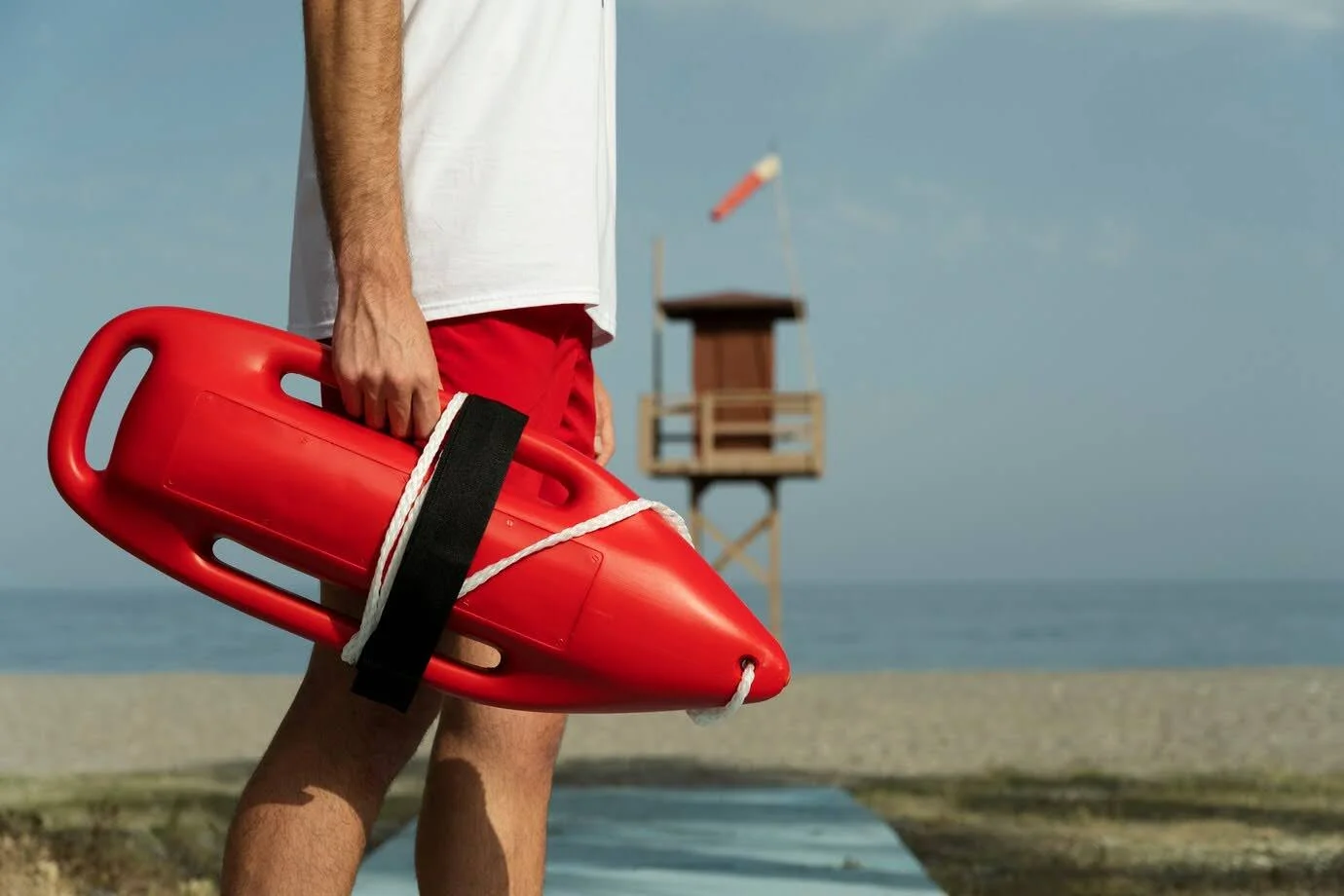Blog
The Importance of Professionalism in Water Sports Lifeguarding

What comes to your mind when you hear about the water sports? The answer is swimming and diving but there are more such as:
- Surfing
- Water skiing
- Kayaking
- Snorkeling etc.
Water sports are thrilling, refreshing and adventurous. People take a keen interest in swimming, rowing, water gymnastics and diving. When you talk about water activities including water sports, you think of potential water hazards. That is where the lifeguards come in, who make sure that the athletes are safe.
They ensure the overall environment of safe and the facilities are clean and tidy for the water sports. Professionalism in lifeguarding is absolutely necessary to preserve a secure environment and save lives. This essay will examine the expectations for water sports lifeguards, the skills they must have, and how they may maintain the highest standards.
Definition of Professionalism in Lifeguarding
Water sports need tidy facilities that are managed by the professionals in water safety. Lifeguards are specialists in water safety and maintaining aquatic facilities. A professional lifeguard is dependable, attentive, and prepared to respond in crises.
They treat their jobs seriously and realize how important it is. Professionalism includes attitude and conduct in addition to technical aptitude. Under stress, lifeguards have to be calm and good communicators both to the public and their crew. To avoid accidents, they have to adhere to safety laws and procedures meticulously.
Basic abilities for Water Sports Lifeguards
Apart from training, professionalism calls for great control of a few fundamental abilities. Observational abilities are essential. Detect early any indicators of difficulty by lifeguards who must watch swimmers and the water conditions continually. Good eyes and the capacity to concentrate for extended periods enable lifeguards to see small changes that could signal hazard.
Another essential ability is physical fitness. Strength, endurance, and agility are necessary for lifeguards to swim fast, rescue victims, and manage gear. Being physically fit also enables lifeguards to work under trying circumstances without losing concentration or energy.
Lifeguard training teaches individuals to must have good communication skills so they can issue warnings and give accurate directions. They must clearly and gently clarify safety guidelines and on occasion console panicky swimmers. With team members and emergency services clearly communicating, a quick rescue may be coordinated in crises.
Ethics and Attitudes in lifeguarding
A professional lifeguard has great ethical values. Their regard for every individual’s dignity and safety is great. Unsupervised, lifeguards neither cheat nor disregard rules. Every time they behave honestly and with integrity. This reliability makes people feel secure around them.
For lifeguards to get along with swimmers of all backgrounds and ages, patience and sympathy are essential attitudes. These traits enable lifeguards to retain control while gently managing challenging scenarios.
Appearance and Attire
A professional lifeguard makes themselves correctly and appropriately. Visible identification on appropriate uniform or swimwear demonstrates that the lifeguard is on duty and official. Equipment that is clean and well kept also projects professionalism. Lifeguards ought to stay away from distracting accessories or garments that might impair their safety or performance.
The professional look comforts swimmers and enables lifeguards to be promptly identified in an emergency. Public and colleagues also gain respect from it.
An expert’s responsibility includes remaining current with fresh safety standards and developments. Lifeguards ought to go to workshops, team trainings, and read safety manuals. Furthermore helps to boost performance by means of knowledge gained from actual events and comments.
Teamwork and Cooperation
Lifeguards for water sports seldom work alone. A foundation of professionalism is good teamwork. Lifeguards should interact with other rescue personnel, supervisors, and emergency responders. They have to cooperate as well. This collaboration guarantees well-coordinated and prompt activities.
Paying attention and respecting team roles foster confidence among lifeguards. Often emphasizing team situations, training activities get lifeguards ready for actual circumstances when collaboration saves lives.
Advocating for Safety Consciousness
One component of professionalism is educating the public about water safety. Usually interacting with swimmers, lifeguards educate them about safety and so help to avoid mishaps. This position calls for clarity and patience.
Raising knowledge of hazards including strong currents, slick surfaces, or dangerous diving helps lifeguards lower occurrences. This aggressive attitude demonstrates a commitment to safety above and beyond rescue responsibilities.
Role of the American Lifeguard Association
Promoting professionalism in lifeguarding the American Lifeguard Association is quite important. It establishes national norms for lifeguard education and certification. Among other things, the organization offers instructional resources, guidelines, and updates on top practices.
Joining or following the American Lifeguard Association enables lifeguards to remain in touch with the newest information and professional network. It highlights the need of strong standards and promotes lifelong learning. Lifeguards certified under programs following the association show a great dedication to their field.
Final Word
Professionalism in water sports lifeguarding entails more than only knowing rescue methods. It encompasses the right mindset, conduct, capabilities, and continuous commitment to safety. Anyone beginning this vital career should take appropriate lifeguard training and keep certification.
Select excellent training programs to lay a firm base. Professionalism saves lives and earns respect; keep in mind. Still an important resource for lifeguards seeking to excel and admirably serve their communities is the American Lifeguard Association.
-

 Celebrity12 months ago
Celebrity12 months agoNathaniel Mandrell Dudney: Insights into Barbara Mandrell’s Family Life
-

 Celebrity11 months ago
Celebrity11 months agoWho Is Elizabeth Buckley Harrold O’Donnell? A Closer Look at Lawrence O’Donnell’s Family
-

 Celebrity11 months ago
Celebrity11 months agoWho Is Vera Davich? A Deep Dive into Her Life and Relationship with Scott Patterson
-

 Celebrity11 months ago
Celebrity11 months agoMelanie Sergiev & Drew Lynch: How Their Partnership Shapes Their Professional and Personal Worlds
















